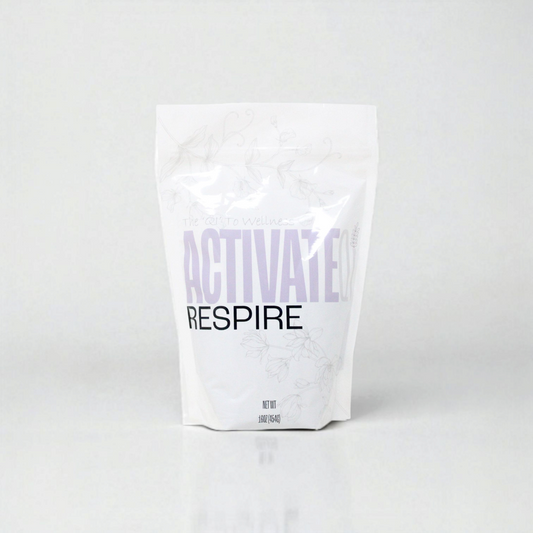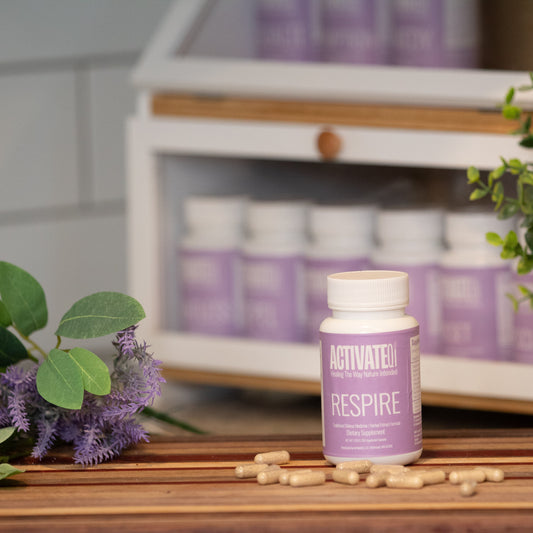Beyond the Lungs: How Systemic Inflammation, Gut Health, and Diet Impact COPD
When we think of COPD (chronic obstructive pulmonary disease), we often picture wheezing, coughing, and reduced airflow — symptoms rooted in the lungs. But here’s the truth: COPD is more than a respiratory condition. It’s a whole-body issue fueled by chronic inflammation, poor gut health, and the modern diet.
Let’s break it down — and explore how a more holistic, root-cause approach can support lung function and quality of life.
Inflammation: The Hidden Engine Behind COPD
While COPD affects the lungs, research has shown that people with COPD also have elevated markers of systemic inflammation — including C-reactive protein (CRP), interleukin-6 (IL-6), and TNF-alpha. These inflammatory markers circulate throughout the body, not just the lungs, and are often the result of:
- Poor dietary choices
- Gut dysbiosis
- Chronic metabolic stress
This systemic inflammation doesn't just worsen breathing — it impairs immune regulation, damages tissues, and contributes to fatigue, pain, and other symptoms.
Processed Foods Pour Fuel on the Fire
Many of today’s common foods are packed with ingredients that trigger or worsen inflammation, especially in those with compromised lung health:
- Refined sugars
- Processed meats
- Omega-6 seed oils (like corn and soybean oil)
- Preservatives and additives
These inflammatory foods promote oxidative stress, disrupt immune signaling, and contribute to mucus buildup and airway constriction — all key challenges in COPD.
The Gut-Lung Axis: A Two-Way Street
Your gut and lungs are in constant communication through what's known as the gut-lung axis. The health of your microbiome directly impacts immune activity in the respiratory tract.
When the gut is inflamed — due to dysbiosis, leaky gut, or chronic constipation — the immune system shifts into high alert, sending inflammatory signals that can:
- Worsen airway inflammation
- Increase mucus production
- Lower the lungs’ resilience to stress
In contrast, a diverse, balanced gut microbiome helps regulate immune responses and protect lung tissues from chronic damage.
Food Sensitivities & Histamine Overload
Not all inflammation is visible. For many people, underlying food sensitivities quietly drive flare-ups. Foods like dairy, gluten, soy, and histamine-rich items (aged cheese, wine, fermented foods) can increase:
- Mucus production
- Airway tightening
- Breathing discomfort
Eliminating trigger foods — even temporarily — can reduce flare-ups and support a calmer immune response.
Antioxidants & Omega-3s: Natural Lung Protectors
Certain nutrients act like bodyguards for your lungs. Diets rich in omega-3 fatty acids, antioxidants, and polyphenols (think berries, leafy greens, turmeric, ginger, and green tea) help:
- Combat oxidative damage in lung tissue
- Decrease airway inflammation
- Support cellular repair and detoxification
These aren’t quick fixes — they’re daily tools that build up the body’s ability to repair and defend.
The Inflammation-Metabolism Connection
Carrying excess abdominal fat — especially visceral fat — can contribute to chronic inflammation. In COPD, being overweight or insulin-resistant puts added pressure on the lungs while also increasing inflammatory signals in the body. This metabolic stress can:
- Reduce lung capacity
- Exacerbate fatigue
- Make breathing more difficult during exertion
Supporting metabolic health with proper nutrition, movement, and blood sugar balance is critical.
The Holistic Approach: Healing from the Inside Out
At ActivateQi, we don’t believe in masking symptoms — we focus on addressing the root of the issue.
A truly supportive approach to COPD includes:
- A nutrient-dense, anti-inflammatory diet
- Gut microbiome support with herbs and food-based therapies
- The removal of food sensitivities and histamine triggers
- Targeted herbal formulas to reduce inflammation and restore balance
Because COPD isn’t just a lung problem — it’s a whole-body imbalance.
And when you treat the root, the lungs — and the rest of the system — can finally breathe easier.




